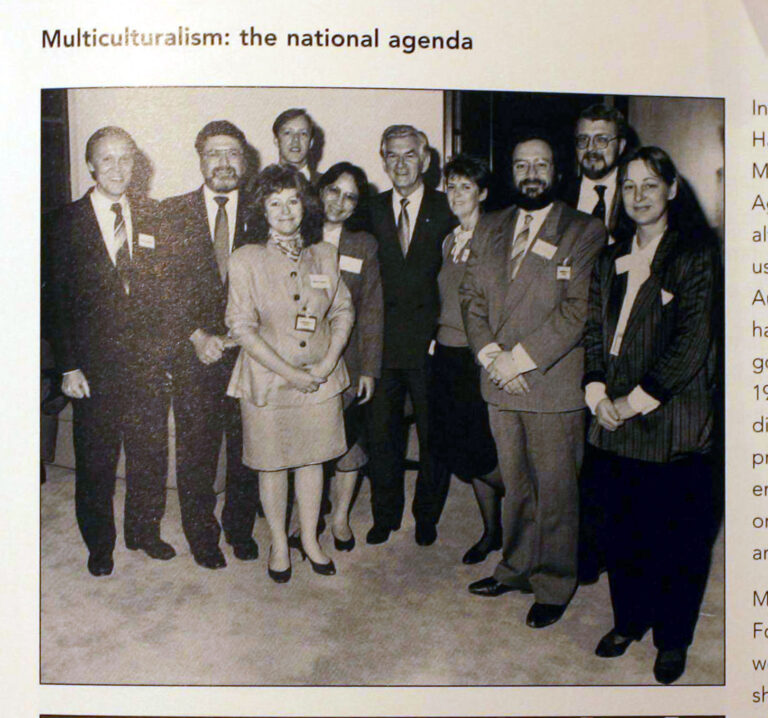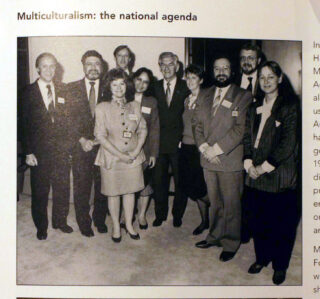- Entry type: Organisation
- Entry ID: AWE2124
Office of Multicultural Affairs
(From 1987 – 1995)
- Occupation Government Agency
Summary
The Office of Multicultural Affairs (OMA) was a division of the Department of Prime Minister and Cabinet. It was established early in 1987 to advise the Prime Minister directly on issues relating to Australian multicultural society. The purpose of the office was to be that of a ‘bridge-builder’, linking community and government to further the policy of multiculturalism. To that end, it had a liaison and Community Information Branch and a Policy and Research Branch. The focus of the community information program was on building upon research undertaken and evaluating ongoing projects. Although most staff were located in Canberra, there were Regional Coordinators in each State and in the Northern Territory, so there was some attention to decentralised services.
In early 1995 the functions of the OMA were to be transferred to the Department of Immigration and Ethnic Affairs. For administration purposes, OMA officially ceased to be part of the Department of Prime Minister and Cabinet on 26 January 1995.
Details
The Office of Multicultural Affairs aimed to:
- Promote acceptance of and respect for cultural differences;
- Improve communication between community groups and Government;
- Ensure equal access and equity for all groups to government services and programs, including health, social welfare, employment, training and education;
- Develop a National Agenda of practical long-term strategies for multiculturalism;
- Advise Government on multicultural programs and services after consultation with community groups;
- Provide information on multicultural policies.
The OMA’s first head, Peter Shergold, adopted the view that, as a bridgebuilder, the agency would be best served by appointing community workers to the regional coordinators’ positions. It is said that he believed that is was easier to teach community advocates how to be bureaucrats than it was to teach bureaucrats how to liaise with the community. This type of thinking led to Beryl Mulder being appointed to the position of Regional Coordinator for the Northern Territory. It also led to innovative programs, such as employing bilingual officers to run the OMA’s consultative programs. This meant that consultations could be managed in community languages, but reports could be written in English. This process resulted in a series of Policy Options Papers, many of which informed debate about access and equity to services for women of culturally and linguistically diverse backgrounds.
Archival resources
Digital resources
Published resources
- Report
-
Resource Section
- Dr Peter Shergold, Foundation Director of the Office of Multicultural Affairs, looks at the role of the Office, and ethnic support., Shergold, Peter, http://www.multiculturalaustralia.edu.au/library/library.php?mediaCode=vid&mode=Category&myOption=Interview
- Resource
